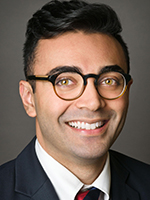The institution doesn’t make the doctor, the doctors make the institution, says Abraar Karan
 Last month was one of the most memorable days of the year for American medical students: Match Day. In what for many is a gruelling process, the residency match process requires students to apply to a variety of hospitals in a given specialty. For those going into more competitive programmes with few slots, this can mean applying to as many as 60 or more institutions, with dozens of interviews to follow. At the end of it all, applicants rank the hospitals they interviewed at in a sequential preference, and hospitals do the same of the applicants. An algorithm then matches applicants and hospitals according to their cross-matched preferences.
Last month was one of the most memorable days of the year for American medical students: Match Day. In what for many is a gruelling process, the residency match process requires students to apply to a variety of hospitals in a given specialty. For those going into more competitive programmes with few slots, this can mean applying to as many as 60 or more institutions, with dozens of interviews to follow. At the end of it all, applicants rank the hospitals they interviewed at in a sequential preference, and hospitals do the same of the applicants. An algorithm then matches applicants and hospitals according to their cross-matched preferences.
I remember going through the match process in 2016. I had applied to residency in internal medicine (IM), and while this specialty wasn’t the most competitive, landing a spot at any of the top ranked IM programmes certainly was. Like all of my classmates, I was filled with anxiety and fear, unsure of where I would end up. In the US, the match process is held together by a binding contract. This means that where you match is where you must go. Attempting to do otherwise requires extenuating circumstances. Effectively, three to eight years of one’s life is in the hands of a computer algorithm, and let me assure you that it doesn’t always work out as planned.
Match day itself is just shy of a national holiday in the US. The entire process has become a fairly well recognised event, although every school does it differently. At our medical school, the match results were handed out in sealed white envelopes and everyone opened them at the same time, usually with their families. At other schools, the process is far more public—applicants actually go up to a microphone and open their letters in front of their entire medical school class. As one might imagine, this can lead to some awkward moments.
Looking back now, I have a different outlook on the match than I did when I was going through it. The best piece of advice I can offer is to not fall into the trap of letting your outcome define your journey. Medicine can feel like a rat race in which you’re always jostling for the next rung on the ladder: for college students, it’s where you are accepted for medical school; for medical students, it’s where you match for residency; for residents, where you train for fellowship; and onwards. I’ll admit that I certainly bought into this type of thinking, at least subconsciously, and it took time to disentangle myself from these pressures and rewire my own understanding of how much the system had come to influence me. Now I can say with certainty: the institution doesn’t make the doctor—the doctors make the institution.
And we have data to back that up. A 2018 study in The BMJ examined the US News and World Report ranking of a physician’s medical school and patient mortality rates. They found no association at all—that is to say: where you went to medical school most likely doesn’t matter, at least in terms of patient mortality. In fact, if it matters at all, it may be in the opposite direction that most American patients would expect. A 2017 study in The BMJ by some of the same researchers showed that patients cared for by international medical graduates actually may have lower mortality rates than those cared for by graduates of US medical schools.
At a practical level, I can say that certain residency programmes may be stronger in certain aspects of clinical training. Our hospital is particularly heavy in cardiology and oncology, and as residents we are exposed to many complex clinical cases in these specialties. But we lack a liver transplant programme, so we are much less likely to be exposed to severe cirrhosis cases. At other programmes, one may find that the opposite is true.
As much as I rejoiced at matching to the hospital that I had ranked first on my list, I realise now that I should have been proud of myself no matter where I ended up. Because ultimately, where you match doesn’t define who you are or what you will do in your career.
I’m proud of my colleagues and certainly have been positively influenced by them, but there are amazing doctors everywhere, not just at brand name hospitals. Your patients will care far more about how kind you were; how eagerly you listened; how gently you cared; and how hard you worked for them than where you matched. I think if all medical students could know this, perhaps they would worry less.
Abraar Karan is an internal medicine resident at the Brigham and Women’s Hospital/ Harvard Medical School. Twitter @AbraarKaran
Competing interests: None declared.
The opinions expressed in this article are solely those of the author and do not reflect the views and opinions of Brigham and Women’s Hospital.
